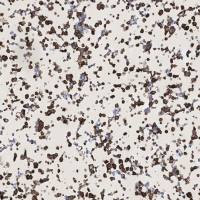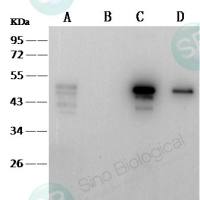Construction of Polyclonal Antibody Libraries Using Phage Display
互联网
3877
Polyclonal antibody libraries (PCALs) are standardized mixtures of antibodies (Abs) specific for an antigen (Ag) or multi-Ag target (a poly-Ag). As the immunoglobulin (Ig) genes are cloned, the mixtures can be perpetuated, amplified, and modified as desired. Poly-Ags of special interest are microbes and tumor cells, with potential for both therapeutic and diagnostic applications. PCALs combine the advantages of serum-derived polyclonal Abs with the perpetuity of monoclonal antibodies (MAbs). Like serum-derived polyclonal Abs, PCALs target multiple epitopes on poly-Ags, resulting in high-avidity binding, low likelihood of Ag “escape variants” emerging, and efficient triggering of effector functions (1 ). A PCAL is not merely a collection of Ag-specific MAbs: the PCAL is selected in mass for binding to a target poly-Ag, and is, thereafter, perpetuated without isolation or characterization of individual library members. Thus, a PCAL contains Abs specific for the target poly-Ag, and Abs that crossreact with other poly-Ags (e.g., normal cells). However, the Ag profile of the target poly-Ag differs qualitatively and quantitatively from the Ag profile of any other poly-Ag, enabling the PCAL to recognize the target poly-Ag with a high signal: noise ratio. This concept is illustrated schematically in Fig. 1. Because effector functions are inefficient at low Ab density, low-level crossreactivity with normal tissue will probably be tolerated in therapeutic applications.









